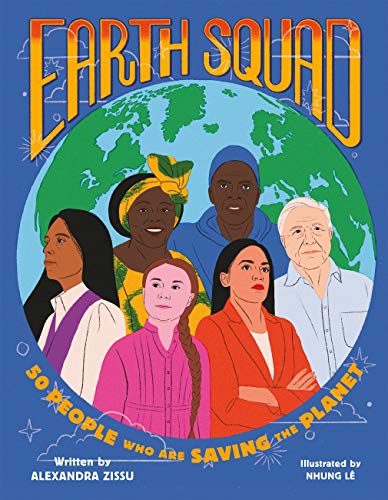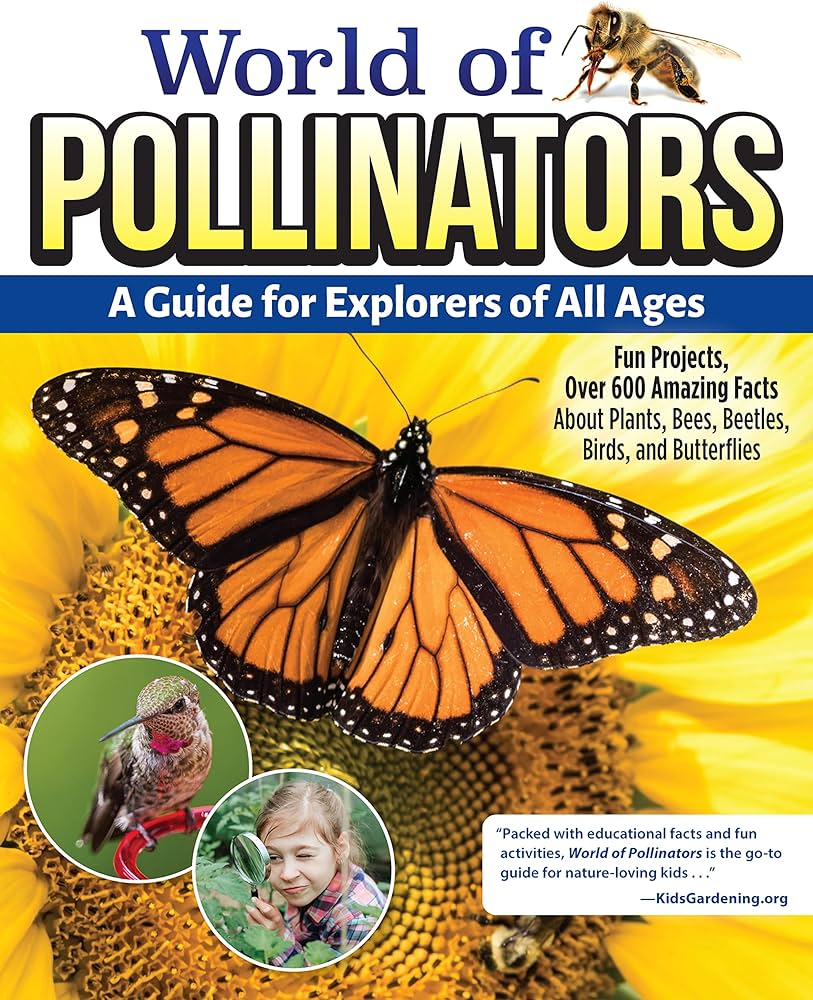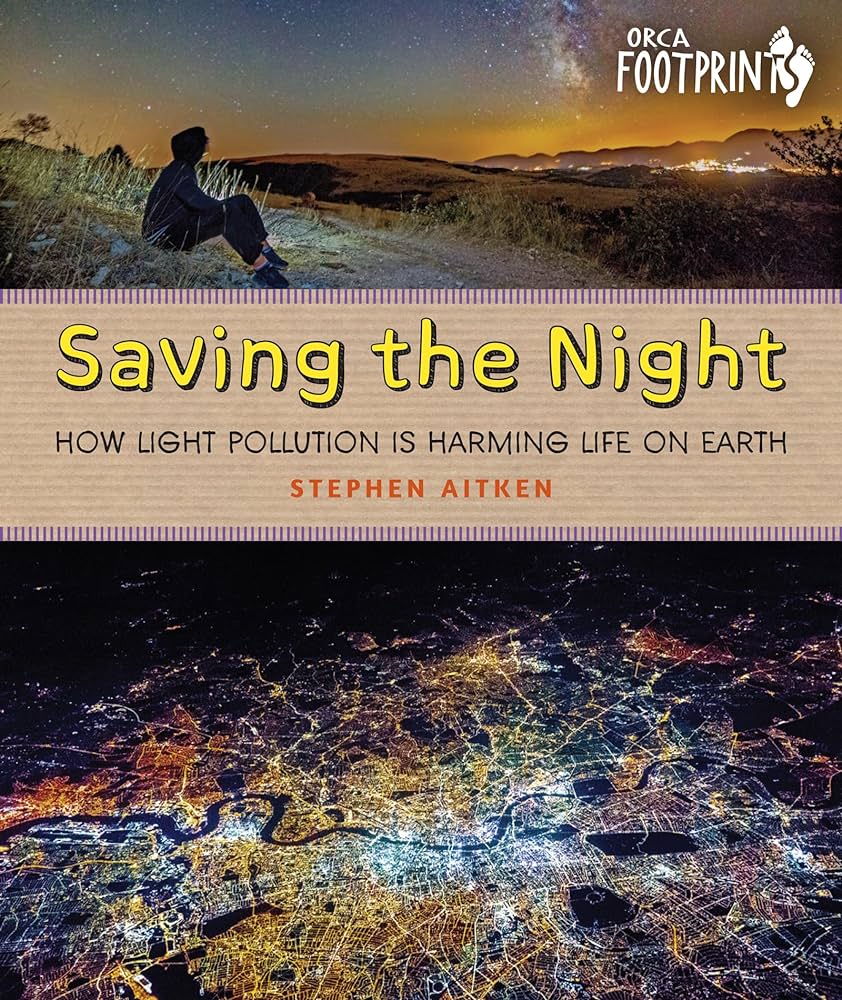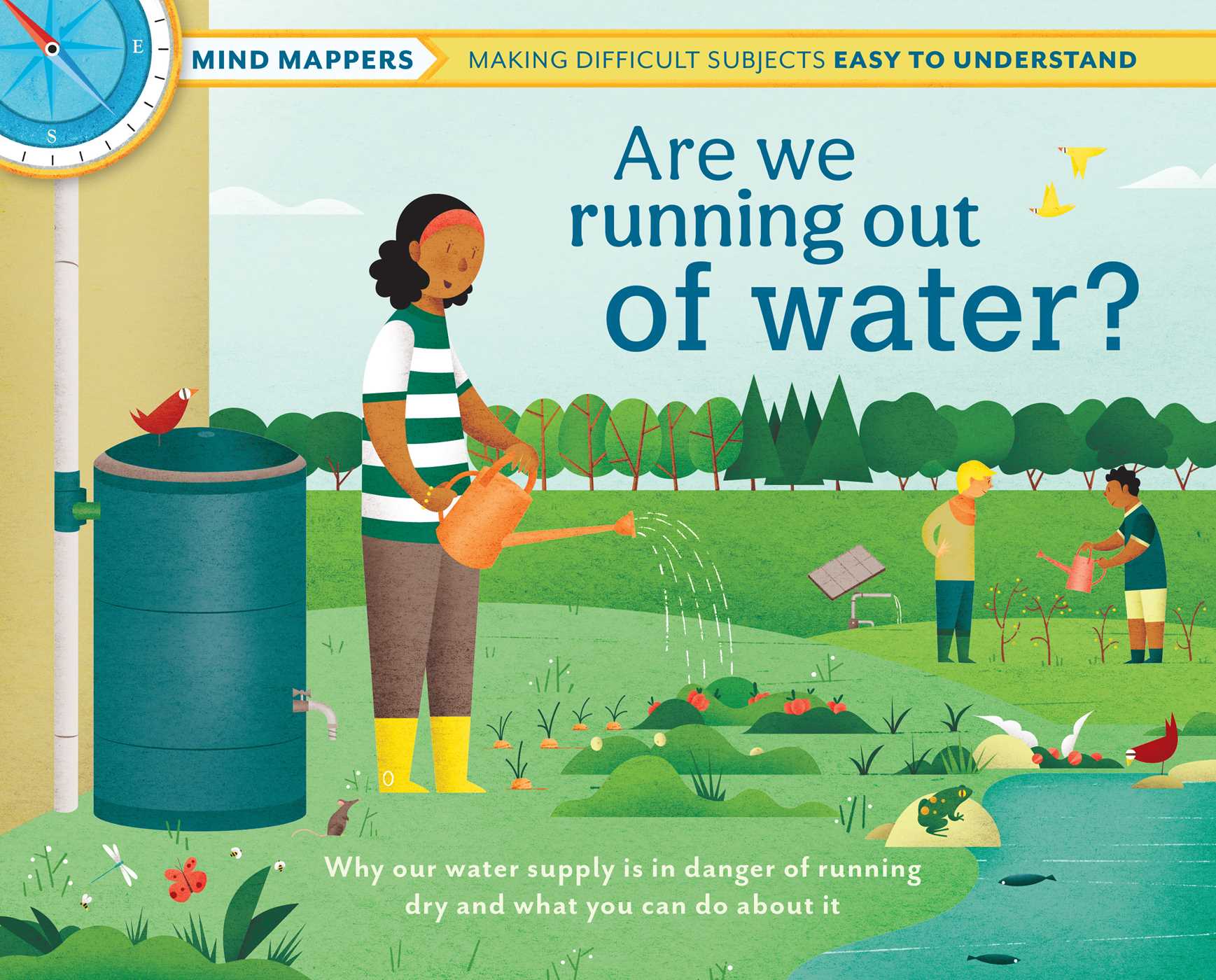Over fifty years ago, Earth Day was only recognized in the United States. Today it is celebrated annually by 190 different countries. Bringing awareness to environmental issues is the first step to keeping our planet safe. There are many new titles in our collection that can teach you and your children about the natural world around us.

Earth Squad
by Alexandra Zissu
Everyday, all around the world, there are people fighting to protect the earth. Sea Captain Charles Moore campaigns against the production of single–use plastics after he discovered a floating garbage pile in the ocean so large it would fill the state of Texas – twice. Filmmaker Chai Jing created ‘Under a Dome,’ a documentary about the smog in China and how it impacts the health of children. Sustainable Agricultural Entrepreneur Sarah Toumi combats soil erosion in Tunisia by planting acacia trees which in turn can be used to make commercial products.
This book highlights 50 different people who are making a difference in the world we live in. These short biographies are simple to read and offer everyday tips that we can do to aid the environment.

World of Pollinators: A Guide for Explorers of All Ages
We cannot exist without plants. Plants cannot exist without pollinators. Plants and trees are responsible for the oxygen we breathe. In order for plants to produce seeds, pollen must be transferred between flowers. This is why pollinators are essential. Bees, hummingbirds and butterflies all help complete this process.
This guide is full of gorgeous illustrations that outline the importance of pollination and how we can ensure the process continues by planting food sources for pollinators.
Read Now
Saving the Night: How Light Pollution is Harming Life on Earth
by Stephen Aitken
We know that plastic waste in the ocean harms marine life. We know exposure to smog can harm birds and mammals. But I bet you’ve never watched a June bug crash into a streetlamp and thought it was a problem.
The increasing amount of artificial light we use can have devastating effects on nature. For example, the insect population uses sunlight and moonlight to guide their paths. Artificial light causes them to fly in circles, directionless, until they die. This removes a large food source for other animals, including birds and bats.
In the oceans, light from the coast illuminates the seabed disrupting entire ecosystems. The number of algae declines in the light and in turn impacts the life cycles of those who rely on it as a food source.
This book breaks down the impact of artificial light and how we can make simple adjustments to help decrease the effect it has on the world around us.

Are We Running Out of Water?
by Isabel Thomas
In Canada, we can access fresh water by simply turning on a tap. But half of the world’s population experiences water scarcity at some point in the year. We use water to wash our cars, water our lawns and fill our pools. Yet others must walk for miles just to find clean water to drink. Clean water is not evenly distributed throughout the world. Pollution, weather events and the growing population can also impact how much water is available. This book breaks down large concepts by using illustrations and mind maps, rather than lines and paragraphs. Each chapter starts with a map displaying the key points that will be discussed in that section. It’s a great choice for readers who shy away from books with large chunks of text.
